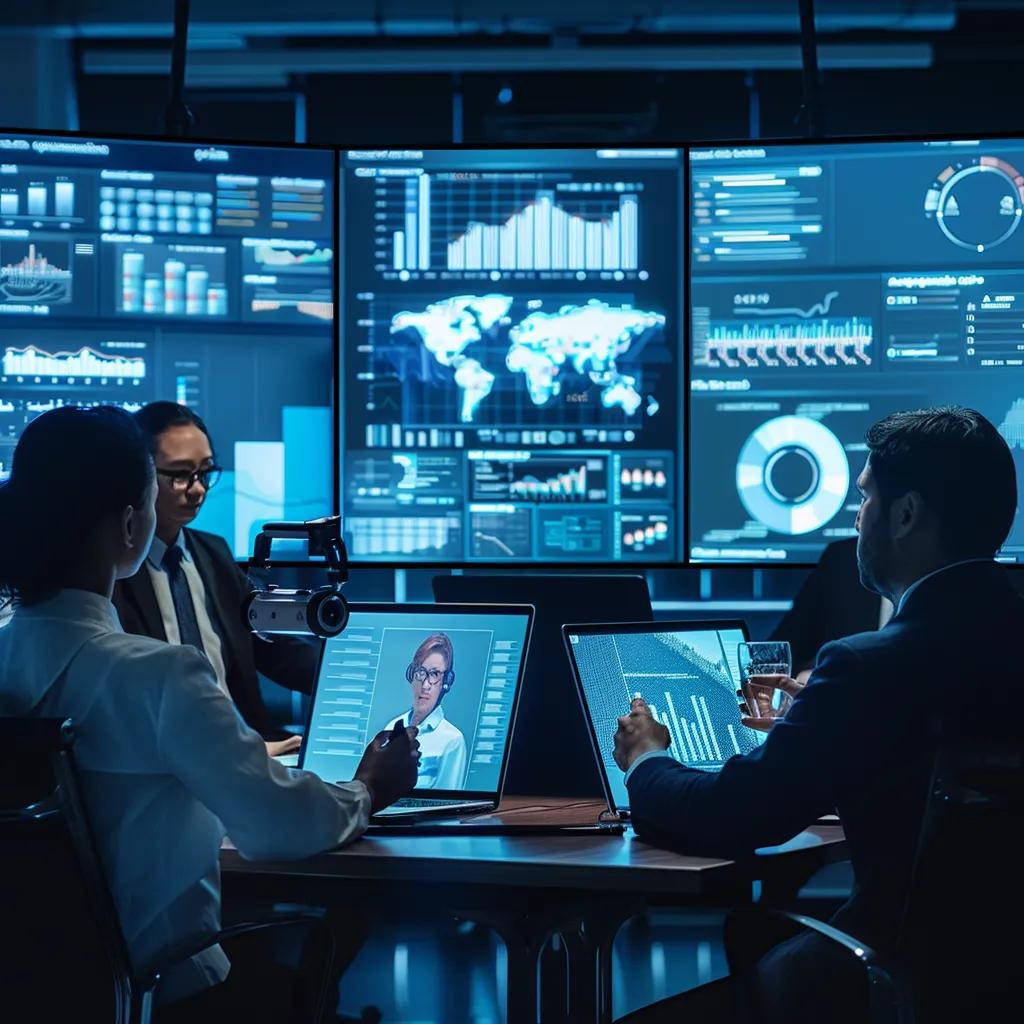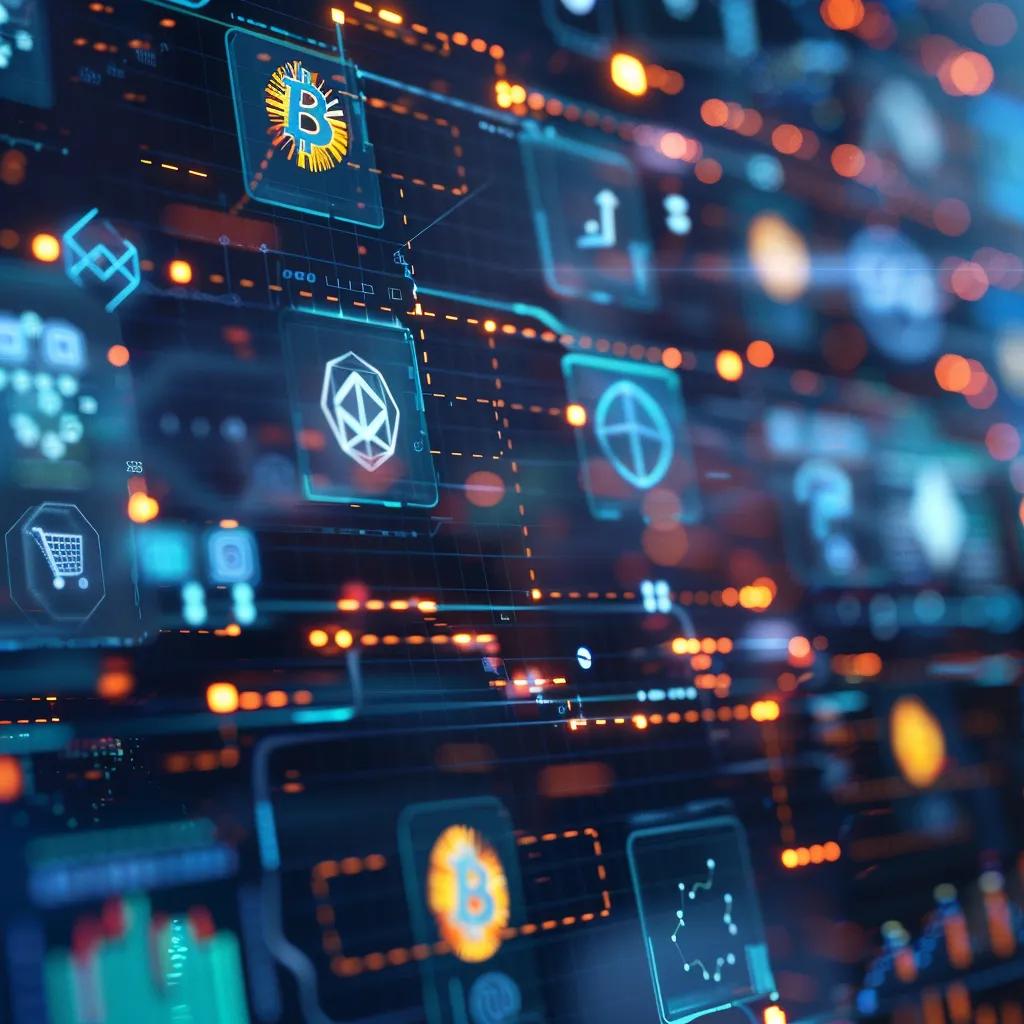Comprehensive Guide to Digital Asset Arbitration Disputes and International Arbitration

Digital asset arbitration disputes have surged by over 150% as cryptocurrencies, NFTs and smart contracts collide with cross-border legal complexities. Businesses face frozen funds, broken code and unenforceable judgments when digital property status remains unclear. This guide explains how international arbitration resolves these conflicts, offering confidentiality, enforceability and technical expertise. You will discover:
- What digital assets are and how arbitration treats them
- Why arbitration outperforms litigation for crypto disputes
- Common dispute categories—from fraud recovery to NFT IP battles
- Practical steps for drafting clauses, picking institutions and using expert evidence
- Regulatory frameworks shaping global awards and on-chain arbitration
- Case studies revealing trends and specialist arbitrator demand
What Are Digital Assets and Their Legal Status in Arbitration?
Digital assets are tokenized representations of value or rights recorded on blockchains, recognized as property for arbitration purposes. This classification allows tribunals to award proprietary remedies and injunctions, ensuring claimants can seize or recover tokens. For example, English law now treats crypto-tokens as “choses in action,” opening the door to proprietary claims.
What Types of Digital Assets Are Common in Arbitration Disputes?
Arbitrators encounter a spectrum of digital instruments—each with distinct legal and technical features.
Below is a comparison of typical assets in arbitration:
These asset variations influence jurisdiction, applicable law and evidentiary strategies, guiding tribunals to select technical experts and specialized rules.
How Are Digital Assets Recognized as Property Under the Law?
Courts in common-law jurisdictions increasingly treat digital assets as property to enable remedies like freezing orders.
- In the UK, the Law Commission’s guidance confirms crypto as “property” under the 1975 Act.
- Singapore’s High Court found tokens subject to proprietary injunctions in DeFi fraud suits.
- US courts debate whether tokens constitute securities or commodities, affecting enforcement under federal statutes.
Recognizing token property status is critical for arbitrators to grant injunctions, order transfers and uphold awards across borders.
Digital Assets as Property
Courts in common-law jurisdictions are increasingly recognizing digital assets as property, enabling remedies like freezing orders and injunctions. This recognition is crucial for arbitrators to grant injunctions and uphold awards across borders, facilitating the recovery of digital assets in dispute.
This source supports the article’s claim that digital assets are increasingly being recognized as property under the law, which is essential for arbitration.
What Role Do Smart Contracts Play in Digital Asset Disputes?
Smart contracts are self-executing code that governs token transfers and financial logic, creating binding digital agreements. By embedding dispute-resolution clauses, they can automatically trigger on-chain arbitration mechanisms. In disputes over failed escrows or flawed DeFi protocols, tribunals analyze code logic and developer intent to interpret obligations. Harnessing blockchain forensics and code audits ensures precise fact-finding and enforceable decisions.
Why Is International Arbitration Preferred for Digital Asset Disputes?

International arbitration provides a neutral forum with expert adjudicators and globally enforceable awards under the New York Convention. Parties avoid public court battles, preserving trade secrets and platform reputations. Confidential hearings also accommodate sensitive on-chain evidence and source code disclosures.
What Are the Key Benefits of Arbitration for Crypto and Digital Asset Conflicts?
The principal advantages of arbitration include:
- Confidentiality—Protects proprietary blockchain code and trading strategies.
- Technical Expertise—Panels can include blockchain specialists and forensic analysts.
- Flexibility—Parties tailor procedures, timelines and evidence protocols.
- Enforceability—Arbitral awards benefit from recognition in 170+ New York Convention states.
Benefits of International Arbitration
International arbitration offers several advantages for resolving digital asset disputes, including confidentiality, technical expertise, flexibility, and global enforceability. These benefits make arbitration a preferred method for resolving complex token conflicts, especially in cross-border scenarios.
This citation supports the article’s discussion of the key benefits of international arbitration, which are central to the article’s argument.
These benefits drive major exchanges to embed arbitration clauses into user agreements, mitigating protracted court litigation.
How Are Digital Asset Arbitral Awards Enforced Globally?
Enforcement relies on the New York Convention framework:
Cross-border enforceability hinges on proper arbitration agreements and clear seat selection to minimize public policy refusal.
What Jurisdictional Challenges Arise in Digital Asset Arbitration?
- Seat vs. governing law—A neutral seat may apply unfamiliar blockchain regulations.
- Public policy—States with crypto bans can refuse enforcement on public policy grounds.
- Multi-token disputes—Awards requiring token return must navigate wallet access, private keys and exchange cooperation.
Anticipating these issues in clause drafting reduces enforcement hurdles and prompt award recognition.
What Are the Common Types of Digital Asset Arbitration Disputes?

Disputes span fraud recovery, IP infringement, DeFi errors and platform liability. Each category demands tailored evidentiary and legal strategies.
How Is Cryptocurrency Fraud and Recovery Handled in Arbitration?
Arbitrations address lost or stolen tokens via fraud claims and restitution orders. Claimants present on-chain transaction histories and blockchain analytics to trace and freeze illicit transfers. Arbitrators can award monetary compensation or order token re-transfer, subject to respondents’ wallet control.
What Intellectual Property Disputes Occur with NFTs?
NFT IP conflicts involve ownership of underlying digital art, copyright infringement and trademark misuse. Arbitration panels examine minting contracts, licensing terms and copyright assignments to determine whether token ownership confers underlying rights. Expert art appraisals and copyright registries often serve as evidence.
How Are DeFi Protocol and Smart Contract Disputes Resolved?
DeFi disputes often turn on code errors, oracle failures or DAO governance votes. Tribunals review smart contract source code, developer communications and on-chain governance records to assess liability. Awards may include code patches, protocol pausing or financial compensation for faulty deployments.
What Disputes Arise Between Exchanges, Platforms, and Users?
User agreements frequently incorporate arbitration clauses that govern trading disputes, margin calls or platform outages. Panels analyze contractual terms, user wallet agreements and terms of service. Liability determinations hinge on breach of contract, fiduciary duties and regulatory compliance failures.
How Can Parties Navigate Digital Asset Arbitration Effectively?
Early planning and precise clause drafting ensure smooth proceedings and enforceable awards.
How to Draft Effective Arbitration Clauses for Digital Asset Agreements?
An effective clause should:
- Specify seat, governing law and language of arbitration.
- Reference specialized digital asset rules (e.g., London Blockchain Expedited Rules).
- Define “digital asset” expansively to cover future token types.
- Mandate technical expert panels and on-chain evidence protocols.
- Provide interim measures for crypto asset preservation.
Incorporating these elements reduces uncertainty and enforcement risk in token disputes.
How to Choose the Right Arbitral Institution for Crypto Disputes?
Leading institutions offer specialized rules:
- HKIAC—Digital Dispute Resolution Rules for expedited blockchain cases.
- SIAC—Experience with high-value cross-border token arbitrations.
- LCAM—Blockchain Expedited Arbitration for smaller disputes.
- JAMS/AAA—US-based forums with customizable tech panels.
Selecting the institution aligned with dispute scale, seat neutrality and technical expertise maximizes procedural efficiency.
What Is the Role of Expert Witnesses and Technical Evidence in Arbitration?
Technical evidence—from blockchain forensics to smart contract audits—is central to fact-finding. Expert witnesses translate cryptographic proofs, node logs and blockchain analytics into admissible reports. Their testimony clarifies complex code functions and transaction flows, bolstering tribunal confidence in award accuracy.
What Are Emerging Digital Dispute Resolution Rules and Platforms?
Innovations include on-chain arbitration frameworks like Kleros, UKJT’s Digital Dispute Resolution Rules and LCAM’s Blockchain Rules. These models integrate decentralized juror panels, smart contract-triggered dispute resolution and modular procedural rules designed for token disputes at scale.
How Do Global Regulations Impact Digital Asset Arbitration Disputes?
Evolving laws shape the scope and strategy of token arbitrations, affecting asset classification, investor protections and enforceability.
What Are the Key Regulatory Frameworks Affecting Digital Asset Arbitration?
Regulatory Frameworks and Arbitration
Evolving regulations significantly shape the scope and strategy of digital asset arbitrations, influencing asset classification, investor protections, and the enforceability of awards. Understanding these nuances is crucial for drafting effective arbitration clauses and selecting the appropriate seat for global enforceability.
This source highlights the impact of regulatory frameworks on digital asset arbitration, supporting the article’s discussion of how global regulations affect the process.
How Do Different Jurisdictions Approach Digital Asset Arbitration?
Comparative approaches:
- UK—Flexibly integrates blockchain evidence under common-law arbitration practice.
- US—FAA enforcement framed by federal securities and commodities laws.
- Singapore—SIAC awards swiftly recognized, with clear crypto guidelines.
- Dubai—VARA and DIFC courts innovate specialized token arbitration rules.
Understanding these nuances informs clause drafting and seat selection for global enforceability.
What Is the Future Outlook for Decentralized and On-Chain Arbitration?
Decentralized platforms will expand peer-to-peer resolution, using token-incentivized jurors and smart contract-enforced awards. On-chain arbitrations promise lower costs and real-time dispute triggers but face regulatory acceptance and enforceability hurdles. Hybrid models combining traditional tribunals with blockchain primitives are emerging as practical pathways.
What Are Notable Case Studies and Trends in Digital Asset Arbitration?
Examining high-profile disputes reveals best practices and evolving tribunal attitudes toward token conflicts.
What Lessons Can Be Learned from High-Profile Crypto Arbitration Cases?
In a major Hong Kong arbitration, a leading exchange secured an expedited award under HKIAC’s Blockchain Rules by presenting real-time node data. An NFT platform case demonstrated the importance of clear licensing language to avoid IP ambiguity. These examples underscore the need for precise contractual definitions and advanced technical exhibits.
How Has the Volume and Nature of Digital Asset Disputes Evolved Recently?
Following the crypto winter, fraud and insolvency claims spiked by 60%, while DeFi protocol failures generated novel governance disputes. Exchanges shifted from litigation to arbitration for user claims, citing confidentiality and cost-efficiency. The trend toward hybrid dispute boards combining mediation and arbitration is also on the rise.
What Are the Demands for Specialist Arbitrators in Digital Asset Cases?
Tribunals increasingly appoint panelists with blockchain credentials, coding experience and financial engineering backgrounds. Demand for “tech-law” arbitrators outpaces supply, driving institutions to train candidates in cryptography, DeFi models and tokenomics. Specialized rosters now feature data scientists alongside traditional legal experts.
What Practical Steps Should Businesses Take to Prepare for Digital Asset Arbitration?
Proactive measures minimize dispute risks and strengthen enforceability of awards.
How to Implement Robust Arbitration Frameworks in Digital Asset Platforms?
Businesses should integrate dispute clauses into all user agreements, smart contracts and platform policies. Clauses must specify token definitions, seat, institutional rules and emergency preservation orders. Regular audits of clauses and code ensure consistency with evolving regulations.
How to Manage Risk and Prevent Future Digital Asset Disputes?
- Conducting legal reviews of tokenomics and smart contract code.
- Establishing on-chain escrow and multisig custody arrangements.
- Maintaining transparent governance records for DAOs.
- Training staff on blockchain forensics and compliance.
These steps reduce fraud, coding errors and contractual ambiguities before disputes arise.
How to Leverage Arbitration for Efficient and Confidential Dispute Resolution?
Embedding arbitration agreements at the token-issuance stage enables immediate dispute referral without court delays. Confidential hearings protect strategic IP and developer code. Expert panels streamline technical fact-finding, delivering swift, enforceable awards that preserve business continuity.
Digital asset arbitration combined with international arbitration rules offers a powerful mechanism for resolving complex token conflicts. Embracing technical evidence, drafting clear clauses and choosing specialized institutions are essential steps in safeguarding digital property. As regulations and on-chain dispute platforms evolve, forward-looking businesses will integrate hybrid models to stay ahead. By preparing robust frameworks and leveraging expert resources, organizations can resolve crypto disputes swiftly, privately and enforceably.
Frequently Asked Questions
What are the main challenges in enforcing digital asset arbitration awards?
Enforcing digital asset arbitration awards can be challenging due to varying jurisdictional laws and public policy considerations. Some jurisdictions may refuse enforcement based on local regulations that conflict with the arbitration award, particularly in countries with strict cryptocurrency bans. Additionally, the complexity of digital assets, such as the need for wallet access and private key control, can complicate the enforcement process. Understanding these challenges is crucial for parties involved in arbitration to ensure smoother enforcement of awards across borders.
How can parties prepare for potential disputes in digital asset transactions?
To prepare for potential disputes in digital asset transactions, parties should implement robust risk management strategies. This includes conducting thorough legal reviews of tokenomics and smart contract code, establishing clear governance structures, and maintaining transparent records. Additionally, integrating arbitration clauses into user agreements and smart contracts can facilitate quicker dispute resolution. Regular audits of these agreements and ongoing staff training on blockchain compliance and forensics can further mitigate risks and enhance preparedness for any arising disputes.
What role do regulatory changes play in digital asset arbitration?
Regulatory changes significantly impact digital asset arbitration by shaping the legal landscape in which disputes are resolved. New regulations can clarify asset classifications, influence investor protections, and affect the enforceability of arbitration awards. For instance, frameworks like the EU’s MiCA provide clearer definitions for crypto-assets, which can support arbitration clauses. Staying informed about regulatory developments is essential for businesses to adapt their arbitration strategies and ensure compliance, ultimately enhancing the effectiveness of dispute resolution processes.
How do emerging technologies influence digital asset arbitration?
Emerging technologies, such as blockchain and smart contracts, are transforming digital asset arbitration by enabling more efficient and transparent dispute resolution processes. On-chain arbitration platforms can automate certain aspects of arbitration, reducing costs and time delays. Additionally, the use of blockchain forensics allows arbitrators to access accurate transaction histories and evidence, enhancing the reliability of decisions. As these technologies evolve, they will likely lead to new arbitration models that integrate decentralized mechanisms and improve the overall efficiency of resolving digital asset disputes.
What are the implications of using smart contracts in arbitration?
Smart contracts play a crucial role in digital asset arbitration by automating the execution of agreements and embedding dispute resolution mechanisms directly into the code. This can streamline the arbitration process, as disputes can be triggered automatically based on predefined conditions. However, the complexity of smart contracts also poses challenges, as arbitrators must interpret code logic and developer intent. Understanding these implications is vital for parties to ensure that their smart contracts are designed to facilitate effective arbitration and minimize potential disputes.
What trends are emerging in digital asset arbitration practices?
Recent trends in digital asset arbitration practices include an increasing demand for specialized arbitrators with expertise in blockchain technology and financial engineering. Additionally, there is a growing shift towards hybrid dispute resolution models that combine mediation and arbitration to address complex digital asset conflicts. The rise of decentralized arbitration platforms is also notable, as they offer innovative solutions for resolving disputes in a more cost-effective and efficient manner. These trends reflect the evolving nature of digital asset disputes and the need for adaptable arbitration frameworks.
Conclusion
Digital asset arbitration provides a vital solution for resolving complex disputes in the rapidly evolving landscape of cryptocurrencies and NFTs. By leveraging confidentiality, technical expertise, and global enforceability, businesses can navigate legal challenges effectively and protect their digital investments. To ensure optimal outcomes, it is essential to implement robust arbitration frameworks and engage specialized institutions. Explore our resources to enhance your understanding and prepare for the future of digital asset arbitration.


